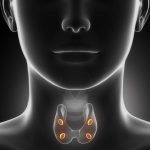Time Released Curcumin Inhibits Cancer Cells
Node Smith, ND
A Washington State University research team has developed a drug delivery system using curcumin, the main ingredient in the spice turmeric, that successfully inhibits bone cancer cells while promoting growth of healthy bone cells.
Work with turmeric could lead to better post-operative treatments for people with osteosarcoma
The work could lead to better post-operative treatments for people with osteosarcoma, the second most prevalent cause of cancer death in children.
The researchers, including Susmita Bose, Herman and Brita Lindholm Endowed Chair Professor in the School of Mechanical and Materials Engineering, and graduate student Naboneeta Sarkar, report on their work in the journal, ACS Applied Materials and Interfaces.
Researchers would like to develop gentler treatment options
Young patients with bone cancer are often treated with high doses of chemotherapy before and after surgery, many of which have harmful side effects. Researchers would like to develop gentler treatment options, especially after surgery when patients are trying to recover from bone damage at the same time that they are taking harsh drugs to suppress tumor growth.
Turmeric
Turmeric has been used in cooking and as medicine for centuries in Asian countries, and its active ingredient, curcumin has been shown to have anti-oxidant, anti-inflammatory and bone-building capabilities. It has also been shown to prevent various forms of cancers.
I want people to know the beneficial effects of these natural compounds. Natural biomolecules derived from these plant-based products are inexpensive and a safer alternative to synthetic drugs,” said Susmita Bose, Washington State University
When taken orally as medicine, the compound can’t be absorbed well in the body
However, when taken orally as medicine, the compound can’t be absorbed well in the body. It is metabolized and eliminated too quickly.
In their study, the researchers used 3D printing to build support scaffolds out of calcium phosphate. While most implants are currently made of metal, such ceramic scaffolds, which are more like real bone, could someday be used as a graft material after bone cancer surgery. The researchers incorporated curcumin, encapsulated in a vesicle of fat molecules into the scaffolds, allowing for the gradual release of the chemical.
Research findings
The researchers found that their system inhibited the growth of osteosarcoma cells by 96 percent after 11 days as compared to untreated samples. The system also promoted healthy bone cell growth.
“This study introduces a new era of integration – where modern 3d printing technology is coupled with the safe and effective use of alternative medicine, which may provide a better tool for bone tissue engineering,” said Bose.
The researchers are continuing the unique area of research, studying the benefits of integrating other natural compounds in biomedical technology. The work was funded by the National Institutes of Health.
Source:
- Sarkar, N & Bose, S. (2019) Liposome-Encapsulated Curcumin-Loaded 3D Printed Scaffold for Bone Tissue Engineering. eLife. doi.org/10.1021/acsami.9b01218.
 Node Smith, ND, is a naturopathic physician in Humboldt, Saskatchewan and associate editor and continuing education director for NDNR. His mission is serving relationships that support the process of transformation, and that ultimately lead to healthier people, businesses and communities. His primary therapeutic tools include counselling, homeopathy, diet and the use of cold water combined with exercise. Node considers health to be a reflection of the relationships a person or a business has with themselves, with God and with those around them. In order to cure disease and to heal, these relationships must be specifically considered. Node has worked intimately with many groups and organizations within the naturopathic profession, and helped found the non-profit, Association for Naturopathic Revitalization (ANR), which works to promote and facilitate experiential education in vitalism.
Node Smith, ND, is a naturopathic physician in Humboldt, Saskatchewan and associate editor and continuing education director for NDNR. His mission is serving relationships that support the process of transformation, and that ultimately lead to healthier people, businesses and communities. His primary therapeutic tools include counselling, homeopathy, diet and the use of cold water combined with exercise. Node considers health to be a reflection of the relationships a person or a business has with themselves, with God and with those around them. In order to cure disease and to heal, these relationships must be specifically considered. Node has worked intimately with many groups and organizations within the naturopathic profession, and helped found the non-profit, Association for Naturopathic Revitalization (ANR), which works to promote and facilitate experiential education in vitalism.
Node Smith graduated from the National University of Natural Medicine (NUNM) in 2017, and is currently licensed as a naturopathic physician in Oregon and working towards becoming licensed in Saskatchewan, Canada as well.










